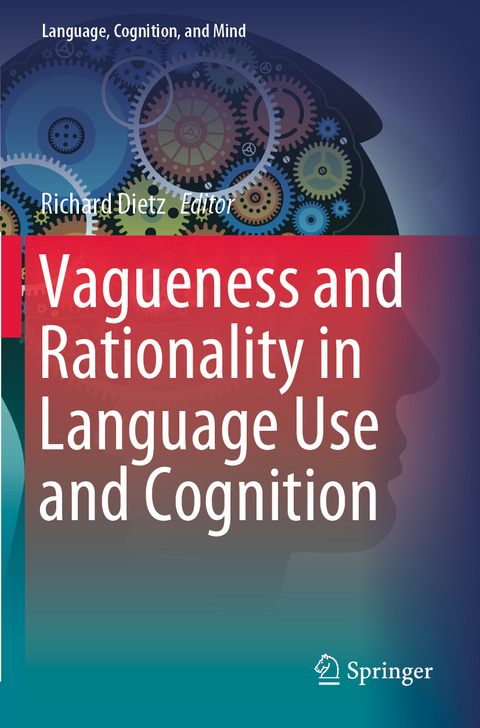
Vagueness and Rationality in Language Use and Cognition
Seiten
2020
|
1st ed. 2019
Springer International Publishing (Verlag)
978-3-030-15933-7 (ISBN)
Springer International Publishing (Verlag)
978-3-030-15933-7 (ISBN)
This volume presents new conceptual and experimental studies which investigate the connection between vagueness and rationality from various systematic directions, such as philosophy, linguistics, cognitive psychology, computing science, and economics. Vagueness in language use and cognition has traditionally been interpreted in epistemic or semantic terms. The standard view of vagueness specifically suggests that considerations of agency or rationality, broadly conceived, can be left out of the equation. Most recently, new literature on vagueness has been released which suggests that the standard view is inadequate and that considerations of rationality should factor into more comprehensive models of vagueness. The methodological approaches presented here are diverse, ranging from philosophical interpretations of rational credence for vagueness to adaptations of choice theory (dynamic choice theory, revealed preference models, social choice theory), probabilistic models of pragmatic reasoning (Bayesian pragmatics), evolutionary game theory, and conceptual space models of categorisation.
Part I: Vagueness in Rational Choice.- Vagueness and Imprecise Credence by Anna Mahtani.- Problems of Precision in Fuzzy Theories of Vagueness and Bayesian Epistemology by Nicholas J. J. Smith.- Regret, Sub-optimality, and Vagueness by Chrisoula Andreou.- Part II: Rationality in Vague Language Use and Cognition.- The Elusive Benefits of Vagueness: The Evidence so far by Matthew James Green and Kees van Deemter.- Towards an Ecology of Vagueness by José Pedro Correia and Michael Franke.- The Rationality of Vagueness by Igor Douven.- Semantic Indecision by Timoth W. Grinsell.- Grounding a Pragmatic Theory of Vagueness on Experimental Data: Semi-orders adn Weber's Law by Arnold Kochari and Robert van Rooij.
| Erscheint lt. Verlag | 28.9.2020 |
|---|---|
| Reihe/Serie | Language, Cognition, and Mind |
| Zusatzinfo | IX, 183 p. 58 illus., 1 illus. in color. |
| Verlagsort | Cham |
| Sprache | englisch |
| Maße | 155 x 235 mm |
| Gewicht | 370 g |
| Themenwelt | Geisteswissenschaften ► Psychologie ► Allgemeine Psychologie |
| Schlagworte | Clustering approach to vagueness • Condorcet's Paradox • Natural sources of vagueness and their implications • Plural values • Theory of cognition, language and mind • Vague expressions |
| ISBN-10 | 3-030-15933-7 / 3030159337 |
| ISBN-13 | 978-3-030-15933-7 / 9783030159337 |
| Zustand | Neuware |
| Haben Sie eine Frage zum Produkt? |
Mehr entdecken
aus dem Bereich
aus dem Bereich
Buch | Softcover (2024)
Hogrefe Verlag
34,95 €


